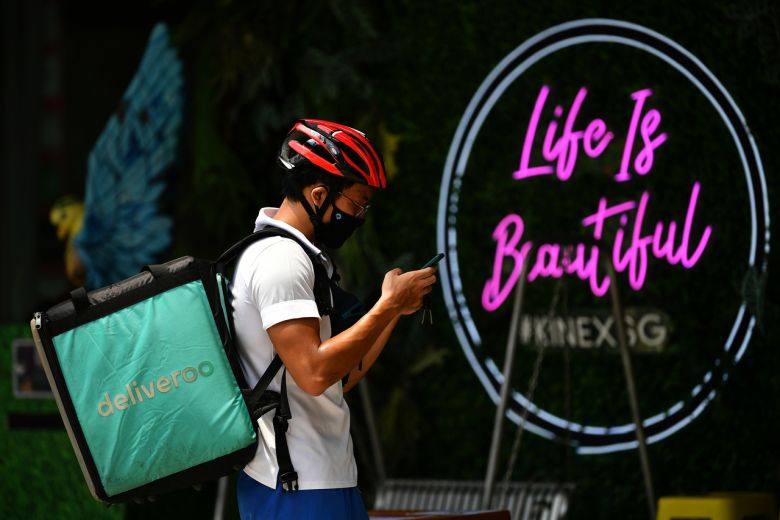Covid-19 testing to be expanded to cover cabbies, food delivery riders
Sign up now: Get ST's newsletters delivered to your inbox

The groups were chosen due to the nature of their working environment, such as the high frequency of interactions with members of the public.
PHOTO: ST FILE
Follow topic:
Coronavirus testing will be expanded in the coming weeks to include groups such as taxi and private-hire car drivers and food delivery personnel, as part of efforts to provide a better picture of infection prevalence in the community.
The Ministry of Health (MOH) said yesterday that testing will also be extended to key vendors servicing foreign worker dormitories, as well as stallholders at hawker centres, markets and coffee shops.
These groups were chosen because of the frequency of their interactions with members of the public, even though there is no evidence so far that they have a higher risk of infection.
The ministry urged individuals in these groups to come forward and take the one-time test, which will be fully paid for by the Government.
MOH regularly reviews its testing strategies to step up its surveillance of infections in the community. Testing was expanded to include pre-school teachers, nursing home staff and residents, and anyone above the age of 12 who are diagnosed with acute respiratory infections.
Among the first groups to be tested were healthcare workers and front-line officers who had interacted with Covid-19 patients.
In its statement yesterday, MOH reiterated that makeshift face coverings such as bandanas, scarves and neck gaiters should not be used, as per the recommendations of the multi-ministry task force tackling the pandemic.
Noting that there have been recent queries on the efficacy of such makeshift coverings in preventing disease transmission, the ministry said that they may not perform as well as purpose-built masks, as they may not have a good fit around the wearer's nose and mouth and are made from materials that are not specific for disease prevention.
"A mask should be worn such that it closely and completely covers the wearer's nose and mouth, without leaving a gap between the mask and the face," the ministry added.
Tighter regulations on what constitutes a mask and how it should be worn also came into effect yesterday, according to a notice gazetted on Friday. The definition of a mask has been revised to mean a covering made of paper, plastic or textile solely designed to be worn over the nose and mouth as protection against infection or air pollution, but excludes a face shield.
Previously, a mask was defined as "any paper or textile covering designed or made to be worn over the nose and mouth to provide the wearer protection against infections or air pollution, but excludes a face shield". A mask is now also required to touch the wearer's nose, cheeks and chin when worn.
The previous legislation stated only that it needed to touch the wearer's nose and cheeks.
Senior criminal lawyer Rajan Supramaniam said that the amended regulations give more clarity over what constitutes a mask and are "more decisive".
Anyone caught wearing a face covering that does not conform to regulations may be reprimanded, warned or even fined, he said.
The law states that those who are caught not wearing a mask can be fined $300. The regulations under the Covid-19 (Temporary Measures) Act were amended after a recent incident when a bus driver refused to allow a man wearing a neck gaiter to board.
A study published by Duke University in the United States earlier this month found that wearing a single-layer neck gaiter made of 92 per cent polyester and 8 per cent spandex is worse than not wearing a mask at all, as the gaiter disperses large droplets into a multitude of small droplets which then remain in the air longer.

